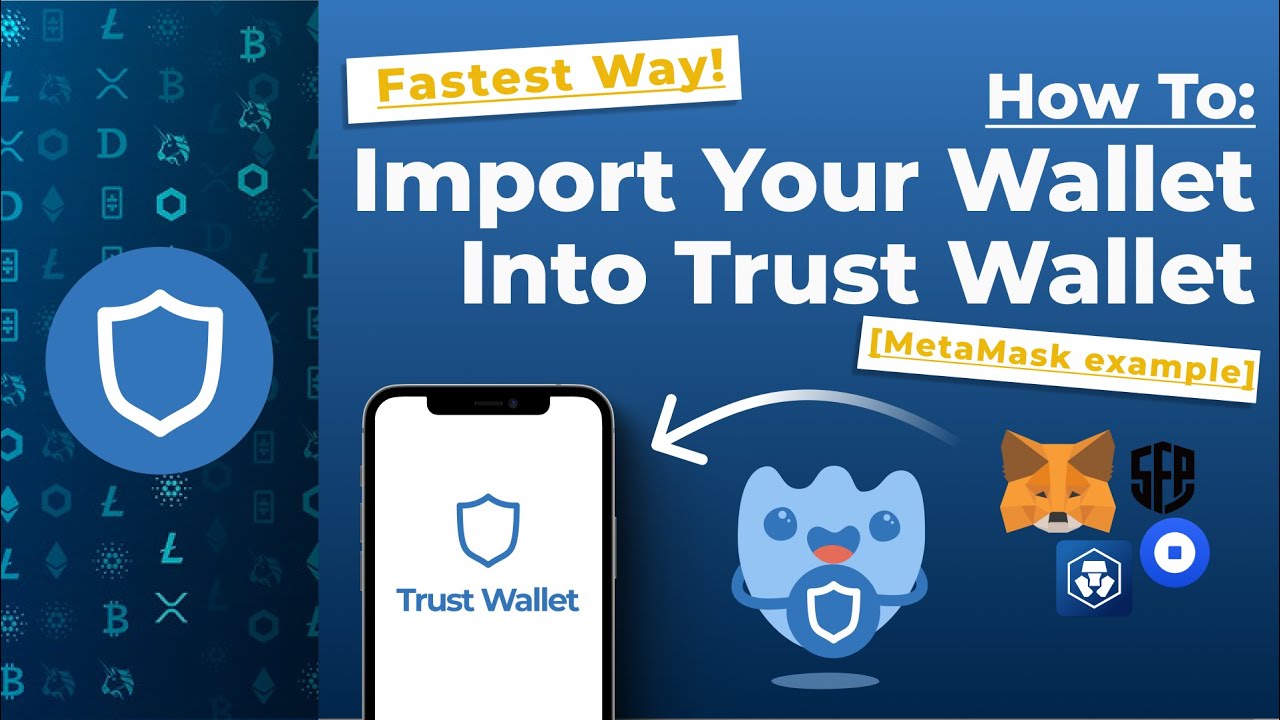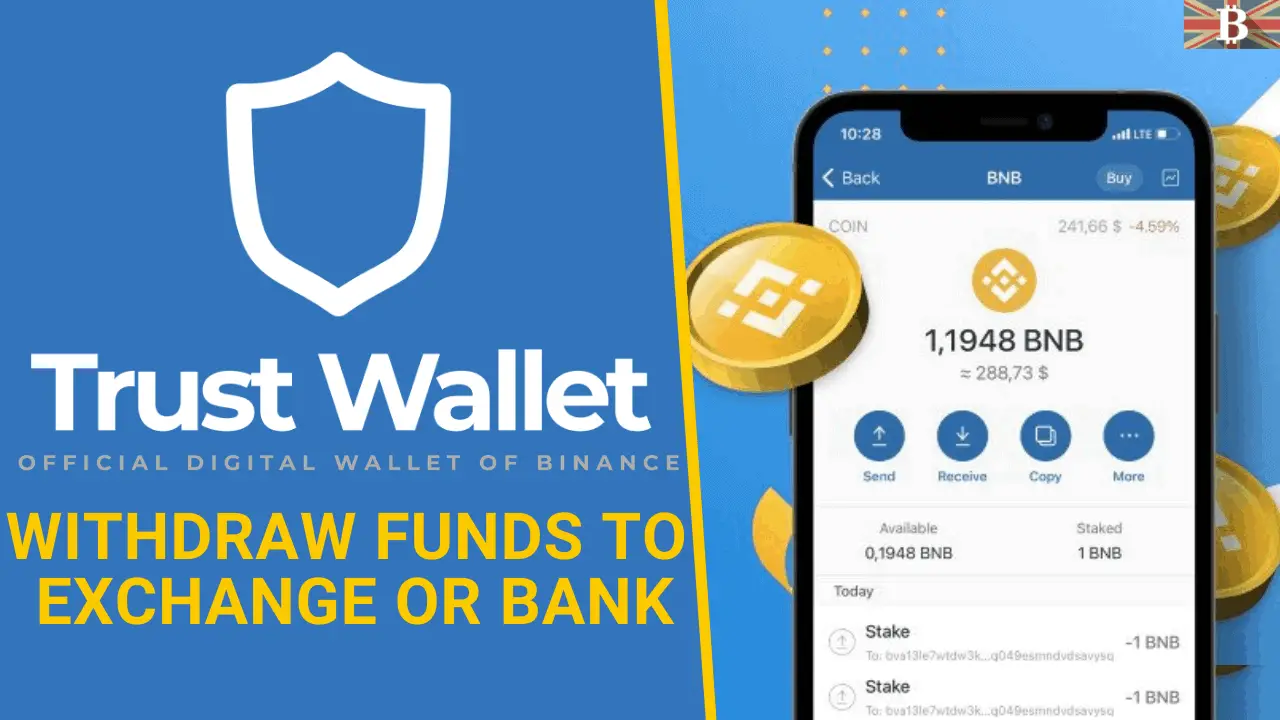Yes, money is considered safe in Trust Wallet due to its robust security features including encryption, local storage of private keys, and support for multi-factor authentication. However, users must also practice secure management of their recovery phrases and stay vigilant against phishing attempts to ensure complete safety.

Understanding Trust Wallet’s Security Features
Encryption and Private Key Storage
- Advanced Encryption: Trust Wallet uses state-of-the-art encryption to protect your private keys, ensuring that they are securely stored on your device. This encryption acts as a robust barrier against unauthorized access.
- Local Storage of Keys: Unlike centralized exchanges, Trust Wallet stores your private keys locally on your device. This means you have full control over your keys and, consequently, your funds. The decentralized nature of key storage significantly reduces the risk of hacking incidents.
Multi-Factor Authentication and Biometric Security
- Enhanced Access Control: Trust Wallet supports multi-factor authentication (MFA) and biometric security features such as fingerprint scanning and facial recognition. These layers of security provide an additional safeguard, ensuring that only the rightful owner can access the wallet.
- Customizable Security Settings: Users can customize their security settings within Trust Wallet, enabling or disabling biometric and MFA features based on their personal security preferences.
Regular Security Audits and Updates
- Ongoing Audits: Trust Wallet undergoes regular security audits conducted by independent third parties. These audits are crucial for identifying and remedying potential vulnerabilities, ensuring the wallet’s infrastructure remains secure against evolving threats.
- Frequent Updates: The Trust Wallet team consistently rolls out updates to enhance security features and fix vulnerabilities. Users are encouraged to keep their app updated to the latest version to benefit from these improvements and ensure the highest level of security for their funds.
User Responsibility in Wallet Security
The Importance of Secure Recovery Phrase Management
- Backup Your Recovery Phrase: Upon creating a wallet in Trust Wallet, users are given a recovery phrase. It’s crucial to write this down and store it in a secure, offline location. The recovery phrase is the only way to regain access to your funds if you lose access to your device.
- Never Share Your Recovery Phrase: Sharing your recovery phrase with anyone compromises the security of your wallet. Trust Wallet or any legitimate service will never ask for your recovery phrase.

Avoiding Phishing and Scam Attacks
- Recognize Phishing Attempts: Be vigilant about unsolicited messages or emails that ask for personal information, recovery phrases, or direct you to suspicious websites. Always access Trust Wallet and related services through official channels.
- Stay Informed About Scams: Educate yourself on common scams within the cryptocurrency space. Trust Wallet and various crypto community forums regularly provide updates and warnings about known scams.
Keeping the Wallet Application Updated
- Regular Updates: Keep your Trust Wallet app updated to the latest version. Updates often contain security enhancements, new features, and patches for vulnerabilities.
- Enable Automatic Updates: If possible, enable automatic updates for Trust Wallet on your device to ensure you’re always using the most secure version of the app.
The Role of Blockchain Technology in Security
Decentralization and Its Impact on Security
- Distributed Ledger Technology: Blockchain’s decentralized nature means that data is stored across a network of computers, making it highly resistant to tampering and fraud. This decentralization enhances security, as there is no single point of failure.
- Reduced Risk of Centralized Control: By eliminating centralized control, blockchain technology minimizes the risk of data breaches and malicious attacks that are more common in centralized systems. Users have more control over their own data and transactions.
How Blockchain Consensus Mechanisms Protect Your Assets
- Validation Process: Consensus mechanisms, such as Proof of Work (PoW) and Proof of Stake (PoS), require network participants to agree on the validity of transactions. This collective validation process ensures that only legitimate transactions are added to the blockchain.
- Security Against Attacks: These mechanisms also protect against common attacks such as double spending. The computational power (in PoW) or the stake amount (in PoS) needed to attempt such attacks makes them impractical and highly unlikely to succeed.
The Immutable Nature of Blockchain Transactions
- Permanent Record: Once a transaction is confirmed and added to the blockchain, it becomes immutable, meaning it cannot be altered or erased. This permanence provides a verifiable and tamper-proof record of transactions.
- Trust and Transparency: The immutable nature of blockchain transactions fosters trust among users. Transparency is ensured as all participants have access to the same ledger, allowing for independent verification of transactions without the need for intermediaries.
Comparing Trust Wallet to Other Storage Options
The landscape of cryptocurrency storage is diverse, offering users a range of options based on their security needs, convenience, and asset management preferences. Trust Wallet, as a software wallet, provides a balance of security and accessibility. Here’s how it compares to other popular storage methods:
Trust Wallet vs. Hardware Wallets
- Security: Hardware wallets, such as Ledger or Trezor, store private keys offline on a physical device, offering an extra layer of security against online attacks. Trust Wallet, while highly secure, is internet-connected, which inherently presents a larger attack surface than hardware wallets.
- Convenience: Trust Wallet offers immediate access to funds and seamless interaction with DApps directly from a smartphone, making it more convenient for daily use and trading. Hardware wallets require connecting to a computer or mobile device to access assets, which may be less convenient for frequent transactions.
- Cost: Trust Wallet is free to download and use, whereas hardware wallets involve a one-time purchase cost.
Trust Wallet vs. Centralized Exchange Wallets
- Control Over Funds: Trust Wallet gives users full control over their private keys and, by extension, their funds. Centralized exchange wallets, on the other hand, hold the private keys on behalf of users, which can be seen as a risk if the exchange is compromised.
- Accessibility and Features: Centralized exchanges offer ease of trading and liquidity but may be subject to downtime and are limited in supporting DeFi and DApp interactions. Trust Wallet provides broad access to the DeFi ecosystem and supports a wide range of cryptocurrencies and tokens.
- Regulatory Oversight: Centralized exchanges are often subject to regulatory oversight, which can offer some level of consumer protection but also comes with KYC requirements. Trust Wallet allows for more privacy, operating with minimal user data collection.

The Pros and Cons of Different Cryptocurrency Storage Methods
- Software Wallets (like Trust Wallet): Offer a good balance of security and convenience, ideal for users frequently accessing their digital assets and engaging with DApps.
- Hardware Wallets: Best for users prioritizing security, especially for storing large amounts of assets long-term, but less convenient for daily transactions.
- Centralized Exchange Wallets: Offer convenience for traders looking for quick access to liquidity and fiat conversion but pose risks in terms of control and potential for exchange breaches.
Choosing the right cryptocurrency storage option depends on individual needs for security, convenience, asset management, and the types of transactions one intends to perform. Trust Wallet’s appeal lies in its strong security measures, control over assets, and seamless integration with the broader blockchain ecosystem, making it a versatile choice for a wide range of users.
